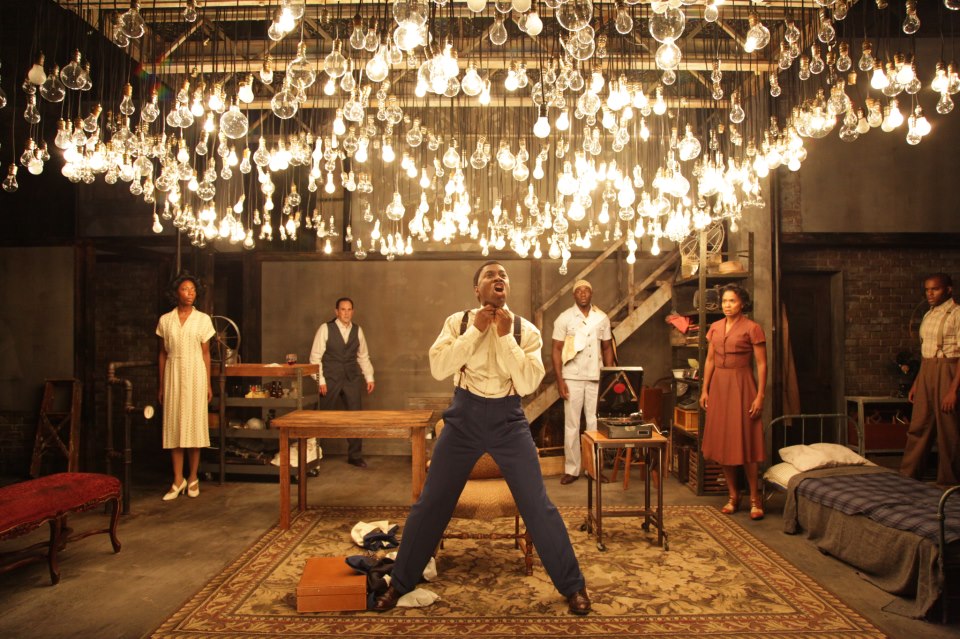
Photo credit: Astrid Reiken
presented by Huntington Theatre Company
written by Ralph Ellison
adapted by Oren Jacoby
directed by Christopher McElroen
264 Huntington Avenue
Boston, Massachusetts 02115
Jan 4 – Feb 3, 2013
Huntington Theatre Co Facebook Page
Review by Gillian Daniels
(Boston) From Ralph Ellison’s original novel, I mainly remember a giddy fury. The anger sears through the plot, spiraling off the pages in righteous, self-aware smoke. It’s humorous in a sad sort of way. In the slanted world Ellison describes, there are people and then there are black people. For the most part, the main character tells the audience, the latter is invisible in contemporary America.Invisible Man brings the book’s passion and powerful images to the stage. One scene slides into another with all the logic of a sad, blurry nightmare. That nightmare is a profound one, difficult to comprehend but never unbelievable.
Director Christopher McElroen, set designer Troy Hourie, and artistic director Peter DuBois gives each scene flourish with the clever use of film, set, and light bulbs of different sizes that line the stage. These bulbs set the story ablaze with the same depth of feeling that should bring Teagle F. Bougere, who plays the main character, alive. Instead, Bougere depicts the titular Invisible Man as a cipher, an idealist whose
innocence is slowly crippled during the course of the play.
The slippery meditation on institutionalized racism begins with Bougere’s character graduating high school. His graduation speech is honored at a party where white men in his Southern hometown force him to box other black students as they enjoy strippers and liquor. Attempting to thank them anyway with a mouth full of blood, Bougere is awarded a scholarship to a prestigious black university.
From there, we follow him to the sensory overload of New York City. He speaks to millionaires, activists, and doctors, coming to the conclusion that he’s inside a game and no one really knows the rules. Each piece of his journey brings him closer to a monstrous understanding of his identity and how little, and how much, it means.
Bougere’s character wanders the play in a fog. Brian D. Coats, who plays a doctor, a homeless man, and the Invisible Man’s grandfather, has an authority that steals the show. Johnny Lee Davenport, as both Bledsoe and Brockway, brings the play gravity whenever in a scene. Bougere, in contrast, feels less vital throughout most of the story, at least until he addresses the audience at the end. As an Invisible Man, maybe it’s appropriate that he is.
With a plot that flows smooth and free, Invisible Man’s story feels as ill defined as a hallucination. It seethes with emotion, however, letting its heart bleed all over the stage even when Bougere feels remote. The narrative may not always be coherent, but its pain and grief electrify the senses, turning the show into a thing of beauty.
